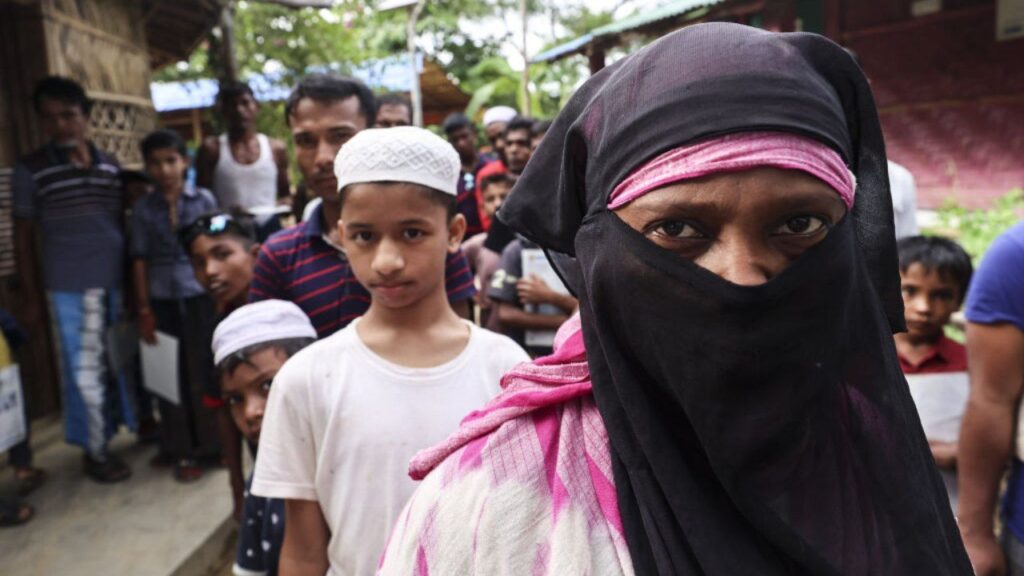This predominantly Muslim ethnic minority has lived for centuries in Buddhist-majority Myanmar and was described by the United Nations in 2013 as one of the most persecuted minorities in the world.
Because of the continuing violence and persecution, hundreds of thousands of them made perilous journeys by sea and land to Bangladesh and Malaysia in the hope of securing a better life.
Entire villages of people have fled to Bangladesh where they live in overcrowded camps in difficult conditions where many people lack health care, safe water, latrines and food.
The overcrowded camps in the area consist of simple, rickety shelters lined up with narrow, muddy lanes, with more than 5,000 people living and with insufficient sanitation facilities. Ponds of stagnant water are fertile breeding grounds for mosquitoes and diseases.
In fact, the few toilets are not enough for the huge numbers of people, and the low water supply, especially during the dry season, means that the facilities are usually filthy. In addition, these facilities do not provide any space for privacy.
The Rohingya are living in a deep psychological crisis according to a study by Doctors Without Borders. Across Myanmar, significant gaps in mental health services are evident, including in Rakhine State.
People find themselves with limited options. In fact, there is only one private mental health clinic available in Sittwe, but it is very expensive for most people, while mental health services in a public hospital are very limited. The city is also about 10 kilometers from the camps in the town of
Pauktau note that camp residents also have to cross the river to reach it, which poses an additional challenge. Therefore, the long distance and restrictions on movement limit the access of the Rohingya living in the camps to these facilities.
The Rohingya also suffer from restrictions on freedom of movement, which deprives them of paid work, education and health care.
They struggle daily to secure food, surrounded by safety concerns and great feelings of desperation. This prolonged status quo has dire consequences for mental health.
The difficult and stressful conditions imposed by the detention of the Rohingya in overcrowded camps coupled with limited economic opportunities and reliance on humanitarian assistance make women and girls more vulnerable to sexual assault, harassment and domestic violence, leading many to contemplate suicide. their mental health while the root causes of their plight remain unsolved.

